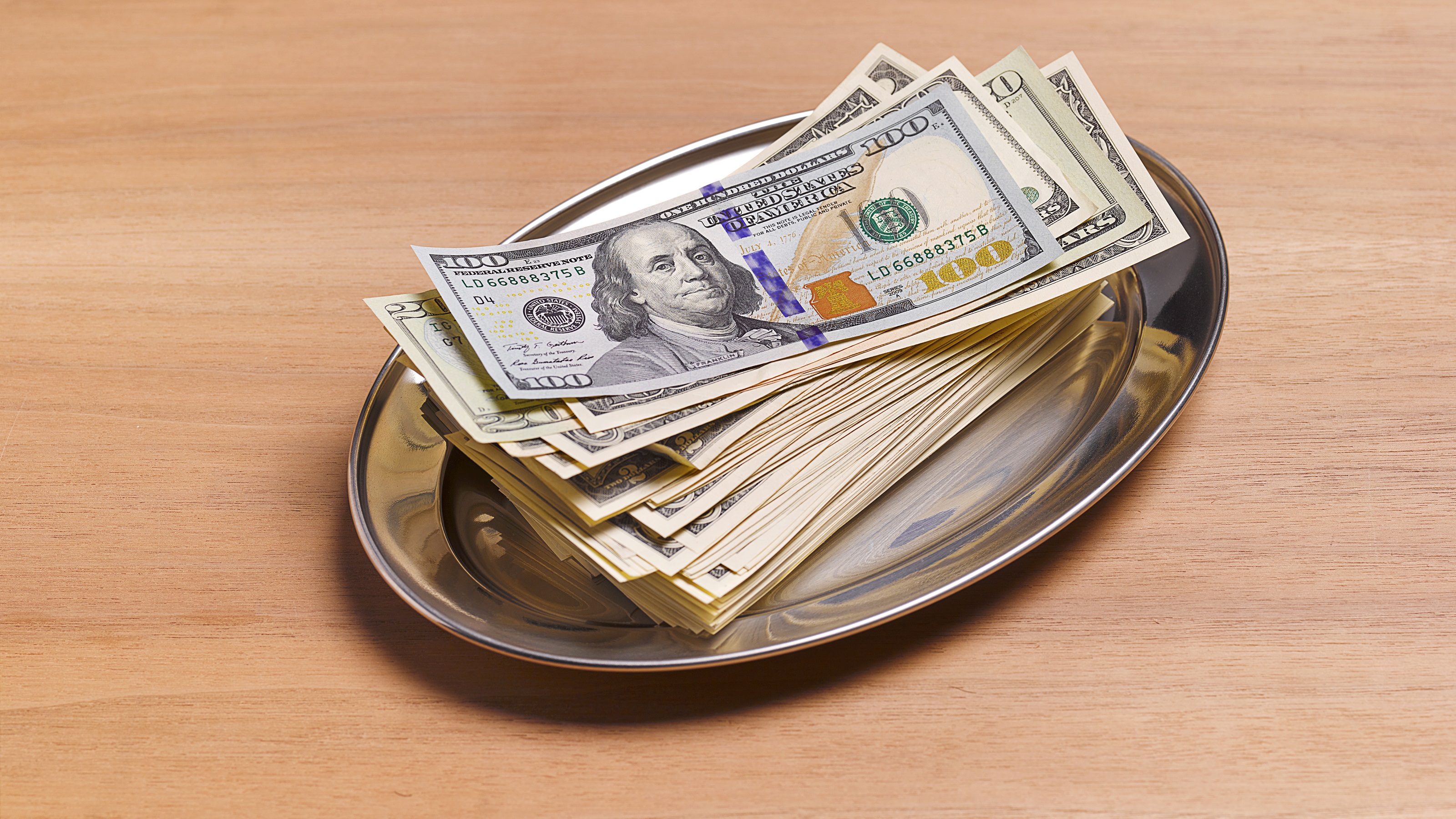
Retail investors are heavily invested in financial services, technology and energy stocks, but the most popular investment, according to a recent survey, can be a missed opportunity.
The asset the most American retail investors hold onto is cash, according to a survey of 10,000 retail investors released recently by eToro. About 76% of American retail investors hold cash assets, well ahead of the 49% of respondents holding domestically listed stocks and nearly double the 40% of respondents holding domestic bonds.
More investors may be "leaning into cash assets for a solid risk-free return" because interest rates have been so high for so long, eToro U.S. investment analyst Bret Kenwell said in a statement. High interest rates present opportunities in safe investments like high-yield savings accounts, certificate of deposit (CD) accounts or Treasury bills, which have been offering yields above 5%. But, depending on a person's needs, investors holding onto more cash could be missing out.
Even the high rates you can currently earn in the various types of savings accounts or fixed income investments cannot compare to the more than 16% gain on the S&P 500 index year-to-date in 2024, not including dividends, which investors can gain access to through low-cost exchange-traded funds (ETFs). This has been an especially strong year so far, but even historically, the stock market has an average annual return of about 10%.
Many people may have been scared off of investing in the stock market in recent years due to volatility during the pandemic era and fears of a recession. However, thus far, that fear has not been realized, and signs indicate there is still room for optimism.
So while people have been playing it safe and getting decent returns in cash in recent times (hopefully, if they're using tools like CDs and high-yield savings accounts, rather than just parking it in a checking account), they could have been getting even bigger returns in the stock market. Plus, it doesn't take active day trading or smart stock picks to succeed: You could easily use ETFs to see big returns, and you don't need a lot of extra money to begin investing.
How much of your investments should be in cash?
Keeping savings or investments in cash is wise for a few reasons, but it should be done thoughtfully.
If you're trying to figure out how much cash you need, you should consider your more immediate needs as well as your emergency fund. Emergency funds should generally be kept in cash for ease of access; it can be held in a high-yield savings account, for example, where you can withdraw any amount at any time, so you can use it penalty-free when an emergency comes up. Experts generally recommend keeping three to six months' of basic living expenses in an emergency fund.
Cash is also king if you have expected expenses coming up in the next 12 months. Say, for example, you're planning to take a big vacation in eight months. In that case, much like with an emergency fund, you want to have your money in an accessible place. In this example, you could invest in a three-month Treasury bill or CD, so it can make a good return before you need it for that trip.
If, instead, you put that money into the stock market and needed to use it within a year, you would be subject to higher capital gains taxes. Because the stock market has more volatility than cash investments, you could also risk having to sell a position at a lower point if you are in need of cash to pay for something.
Get started investing with ETFs
As mentioned, ETFs are an easy way to garner stock market returns.
ETFs "hold a collection of stocks and bonds in a single fund," Kiplinger contributing writer Will Ashworth explains in a piece about how to invest in ETFs. “Unlike mutual funds, they are bought and sold on stock exchanges, can be traded anytime the exchange is open, and you can start your ETF investing even if all you have to invest is $50.”
ETFs also generally carry lower expense ratios than mutual funds. All of these reasons make ETFs a great option for beginner investors just getting started or those looking to move out of cash and into equities.
The most popular ETFs include S&P 500 ETFs, such as the ultra-popular SPDR S&P 500 ETF Trust (SPY) – the largest exchange-traded fund in the market. It tracks the Standard & Poor's 500 Index, which consists of 500 large, predominantly U.S-domiciled companies that trade on the major American exchanges. By owning this ETF, you effectively own the S&P 500's performance, so if it rises, your investment will also rise.
SPY is currently trading around $550, but with plenty of brokerages selling commission-free fractional shares, you don't necessarily need that much to get started. Besides, there are plenty of ETFs on the market, including many at much lower costs. You can see Kiplinger's best ETFs to buy for some more options.
If you're looking for the best returns, especially over a longer timeframe, historically, stocks should be in your portfolio. Keep in mind, though, that there are some times when you should avoid putting too many eggs in that basket, like if you will need money within a short timeframe for a large purpose or for retirement purposes and can't risk potential short-term volatility.







